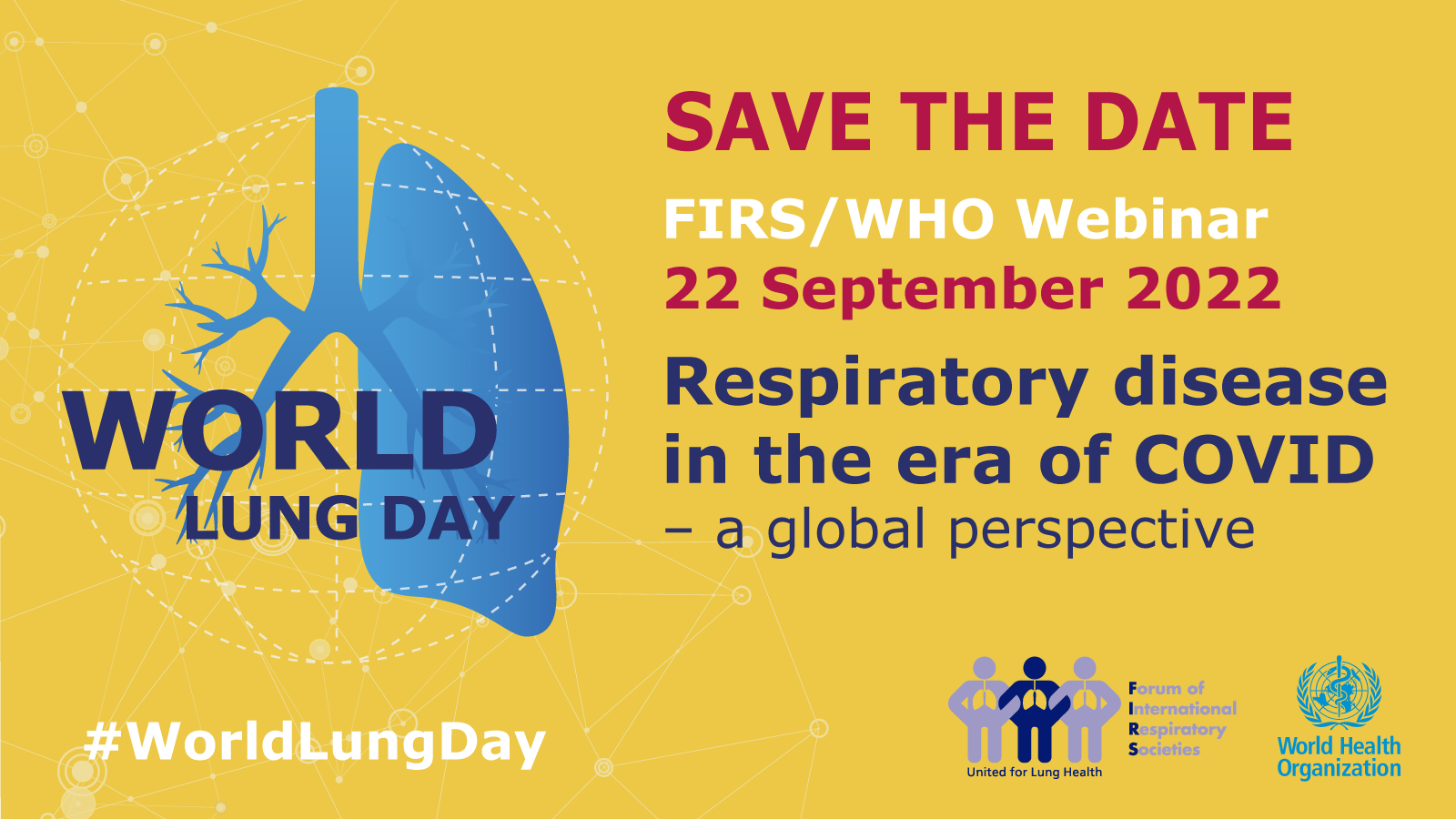World Lung Day Graphics 2023
- Super User
- Blog
- Hits: 1218
For the National Lung Day we have invited our local representatives to organize local initiatives in order to raise awareness on this theme. We have asked them to organize in a public space (ex. A square) or in their medical clinics entertainment activities and informational meetings.
Link: www.sipirs.it

We launched a special awareness project on the 52nd anniversary of our foundation with the message "We Walk with Endless Breath for a Healthy Future". This social responsibility project, entitled “The Healthy Future Walk: Take a Breath, Be Breath", aims to raise awareness about lung health and respiratory diseases, and invites people of all ages to participate in a more healthy life. over 1 million real steps have subsequently been taken in support of COPD awareness to date. World Lung Day. On this special day, the results of the project will be announced and the importance of the subject will again be emphasized. By World COPD Day, on which the project will be concluded, the goal is to achieve 3.6 million steps.

media launch we are having on 15 Sept in Dublin for World Lung Day
Link: www.irishthoracicsociety.com

3 September: Healthy Lungs for Life spirometry event, Barcelona

Congratulations to the 10 successful applicants for the latest round of Healthy Lungs for Life grant applications focused on World Lung Day, joint funded by FIRS. Cameroon, Ghana, UK, Cyprus, Iran, India and more.


The World Health Organization (WHO) describe coronaviruses as a large family of viruses that can cause illness ranging from the common cold to more severe diseases like Middle East Respiratory Syndrome (MERS) and Severe Acute Respiratory Syndrome (SARS). The 2019 novel coronavirus (COVID-19) is a new strain that has not been identified in humans before.
Coronaviruses are zoonotic, meaning they are transmitted between animals and people. Detailed investigations found that SARS-CoV was transmitted from civet cats to humans and MERS-CoV from dromedary camels to humans. Several known coronaviruses are circulating in animals that have not yet infected humans.
What are the symptoms?
How can coronavirus be prevented?
There are currently no vaccines for COVID-19. The Centers for Disease Control and Prevention (CDC) recommends the following everyday preventive actions to help prevent the spread of respiratory viruses, including:
WHO also recommends avoiding close contact with anyone showing symptoms of respiratory illness, such as coughing and sneezing, and thoroughly cooking eggs and meat.
Resources from FIRS Societies
Our international respiratory societies have produced materials for all on COVID-19, click below to view:
Keep updated with the very latest information from: